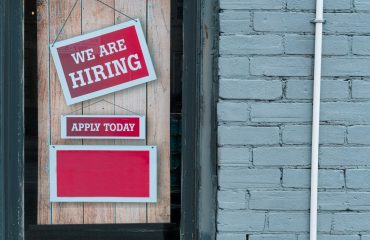We’ve all seen the headlines over the last several months that the “Great Resignation” had finally arrived but as the statistics show, The Great Resignation is not as great of a headline as one would think. In fact, as data continues to emerge on just why so many employees are leaving the workforce in drones many analysts suggest that perhaps the bigger headline is that Americans are simply burned out.
In a recent interview with CBS’ 60 minutes, Karin Kimbrough, Linkedin’s Chief Economist highlighted that studies are showing that at the nationwide level the number of American’s quitting their jobs is higher than ever and not everyone is returning back to work.
“It may not just be worth it for some folks. And so in some cases people are quitting and they’re not yet returning. They’re taking a break. Americans are burnt out. I like to think of it as– it’s a, “Take this job and shove it,” measure. It’s just a sign of people saying, “You know, I don’t need this,” said Kimbrough.
This isn’t surprising data.
Our client Deloitte recently conducted a study of Millenials and Generation Z’s and the studies showed that the stigma around mental health challenges, particularly in the workplace, remains. About a third of all respondents (millennials 31%, Gen Zs 35%) said they’ve taken time off work due to stress and anxiety caused by the pandemic. Among the two-thirds who didn’t take time off,
four in 10 deemed themselves to be stressed all of the time but chose to work through it. And
approximately 40% of millennials and Gen Zs feel their employers have done a poor job of supporting
their mental well-being during this period.
So yes, a great resignation is happening but it requires a deeper dive. The literal definition of resignation is to give up something undesirable and that’s exactly what employees are giving up. The undesirable idea that stress and workplace burn out is okay or normal. As Kimbrough put it, “the social contract of work is being rewritten, and right now the worker’s holding the pen. There are just thousands upon thousands of available jobs in America right now. And companies are eager to hire. But workers are being very choosy.”
Choosy is their right and if employees are being more choosy the question remains who are they choosing?
It depends on who you ask.
One creative in our network at BGG Enterprises who chose to remain anonymous in hopes of one day soon returning to the workforce admitted that since leaving her six figure salary in December she simply chose herself.
“After over a decade of work I was tired of feeling like the end of one job had to be the beginning of a new one. I needed to take some time to breathe and re-center on the things that mattered to me as a person and not just as a professional.”
She’s not alone.
The Wall Street Journal reported that after several years in the workforce and some savings in the bank, many young professionals are taking a breather to learn new skills, network and develop their creative potential before locking into another career path. These workers, now in their late 20s and early 30s, are both chastened by pandemic-era burnout and optimistic about a rebounding job market. While many of their peers are jumping immediately to better-paying or more well-suited jobs, many are leaning into an early-career break instead.
Career breaks don’t have to a bad thing and if employers want to see the workforce rebound sooner than later it would be in their best interest to encourage it. Studies have shown that career breaks create and foster productive and happy employees, who then in turn help fuel successful business, something employers are struggling to obtain in this pandemic era.
So rather you call it the Great Resignation or the Great American Burnout the truth remains. The American workforce wants and deserve better. They want better pay and benefits, of course, but they’re also demanding autonomy and flexibility, particularly in their work schedules. And employers – large and small – simply have to respond or more people may very well resign more often.




Comments are closed.